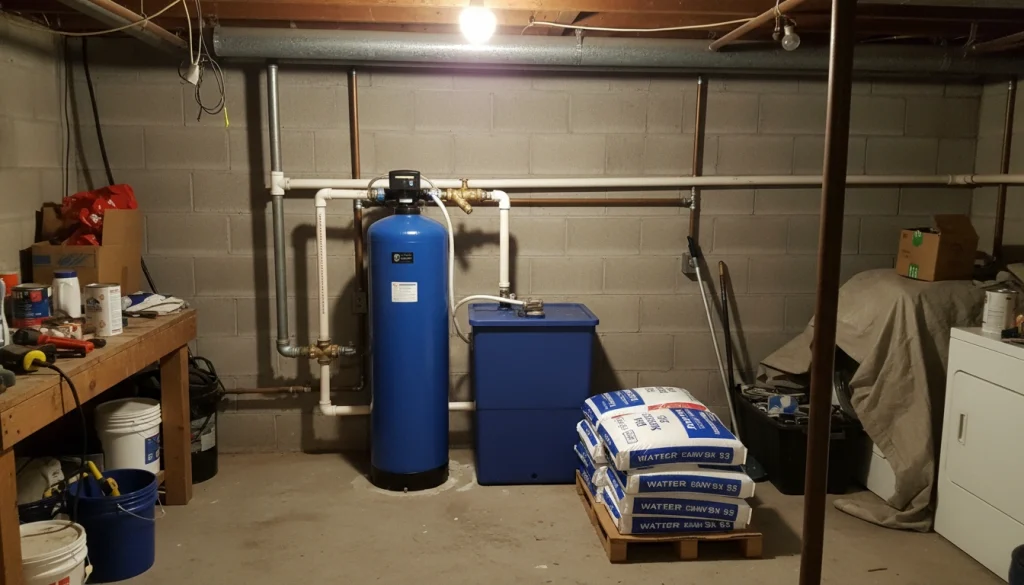Hard water is a common problem for homeowners across Washington State. It may not pose a health risk, but it can take a toll on your plumbing, appliances, and even your skin and hair. That’s where water softeners come in. Understanding how they work and why professional installation is important can help you protect your home and make smart decisions about your water quality.

What Is Hard Water?
Hard water is water that contains a high concentration of dissolved minerals—primarily calcium and magnesium. These minerals are picked up as groundwater passes through soil and rock. While they’re not harmful to drink, they can cause issues throughout your plumbing system and household.
Common signs of hard water include:
- Soap scum or film on showers and tubs
- Spots on dishes and glassware
- Reduced soap and detergent effectiveness
- Buildup in pipes and appliances
- Dry skin and dull hair
How Do Water Softeners Work?
A water softener is a filtration system that removes excess calcium and magnesium through a process called ion exchange. Here’s how it works:
- Mineral Tank: Hard water enters the softener and flows through a bed of resin beads. These beads carry a negative charge and are coated with positively charged sodium or potassium ions.
- Ion Exchange: As the hard water passes through, the calcium and magnesium ions (which have a stronger positive charge) are attracted to the resin and replace the sodium or potassium ions. The hardness minerals stick to the resin, and the water leaving the tank is now “soft.”
- Regeneration Cycle: Over time, the resin beads become saturated with calcium and magnesium. The system flushes them out using a salt brine solution, restoring the beads with fresh sodium or potassium and preparing the system for another cycle.
Why Soft Water Is Important for Your Home
Installing a water softener can deliver several long-term benefits:
- Protects Plumbing: Soft water prevents scale buildup in pipes and fixtures, reducing the risk of clogs and corrosion.
- Extends Appliance Life: Water heaters, dishwashers, and washing machines last longer and operate more efficiently with soft water.
- Improves Cleaning: Dishes come out cleaner, laundry feels softer, and soap rinses more effectively from skin and hair.
- Saves Money: You’ll spend less on energy, cleaning products, appliance repairs, and plumbing service over time.
Why Hire a Professional for Installation?
Although some homeowners may consider installing a softener themselves, professional installation is highly recommended for several reasons:
- Proper Sizing: A pro will assess your water usage and hardness level to select the right system size for your household.
- Correct Setup: Water softeners must be integrated into your home’s plumbing at the proper point and often require electrical work and drain connections.
- Code Compliance: Professionals ensure the installation meets local plumbing codes and regulations.
- Warranty and Support: Many manufacturers’ warranties require professional installation, and reputable installers offer maintenance support and troubleshooting.
Final Thoughts
A water softener is more than a luxury—it’s a valuable investment in your home’s efficiency, comfort, and long-term health. With a professional installation, you can rest easy knowing your system is set up for peak performance, saving you money and hassle for years to come.
Contact American Pump and Drilling for a water softener evaluation today. Stay ahead of plumbing problems with our help!
